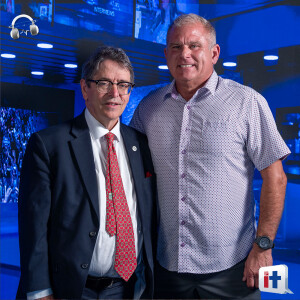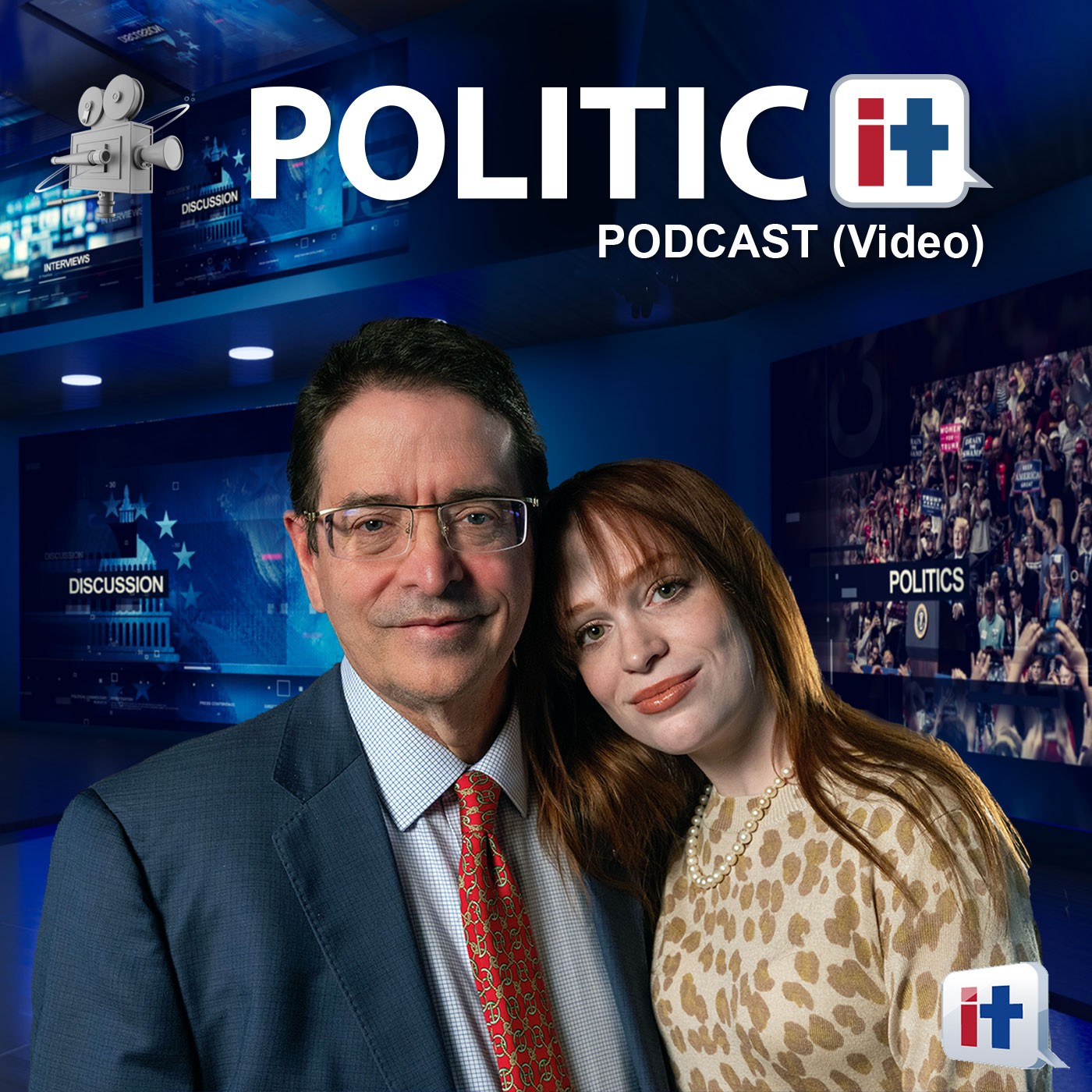Episodes
Episodes



Tuesday Sep 02, 2025
Meet Tawnee: Riverton City Councilmember, Financial Expert & Community Leader
Tuesday Sep 02, 2025
Tuesday Sep 02, 2025
Tawnee has been married to Dan for 26 years and is the proud mom of six children and foster kids. She earned her MBA from Utah State University (go Aggies!) with a focus on financial planning and has dedicated her career and community service to helping others.
Tawnee is currently serving her 8th year on the Riverton City Council. She also serves on the Utah League of Cities and Towns Board, is Vice-Chair of the Tourism, Recreation, Culture and Convention (TRCC) Board, and a member of the Jordan River Commission Board. Locally, she is active on the Riverton High School Community Council and PTA. Professionally, Tawnee is an Accredited Financial Counselor, Financial Literacy Instructor, Adjunct Faculty at USU, and Director of the Housing and Financial Counseling Center. In her free time, she loves traveling, reading, and exploring National Parks.
#politicit #utahelections #utpol



Tuesday Sep 02, 2025
Tuesday Sep 02, 2025
A proven leader in both public service and business, Trent was elected as mayor of Riverton, Utah in 2017, delivering exceptional results, including cutting property taxes, reducing fees, and saving residents tens of millions of dollars. He has been consistently pro-liberty during the COVID lockdowns, has protected the right to life of the unborn, and pushed back on damaging “woke” policies like ESG.
Trent was also a candidate for US Senate in 2024, receiving the endorsement of President Trump, Senator Tuberville, Senator Paul, Charlie Kirk, Kash Patel and several other national conservatives. Beyond his mayoral duties, Trent has over 25 years of executive experience, successfully managing organizations ranging from Fortune 500 companies to small and medium-sized enterprises. He recently served on the board of an energy company he helped take public, securing a listing on NASDAQ in 2022. Trent and his wife Alisha are the proud parents of two children. In May 2025, Trent was appointed as a regional advocate in the Small Business Administration's Office of Advocacy, where he is one of 10 regional advocates within SBA tasked with working with businesses and local leaders to support small business growth.
Staggs said, "My mission is to champion small business, listen to your concerns, identify cumbersome red tape and make policy proposals to the White House, Congress and state legislatures that will make a difference. Just as I've done as a mayor, I will continue to champion limited government, fiscal responsibility and local control. These are the principles that allow small businesses to thrive rather than merely survive.
#politicit #utahelections #utpol



Tuesday Sep 02, 2025
Tuesday Sep 02, 2025
Doug is a first-generation American whose parents immigrated to the US from Tonga in the late 1970s to pursue the American Dream. Through the sacrifice, hard work, and entrepreneurship of his parents, Doug saw that in America, anything is possible, especially in Utah.
#politicit #utahelections #utpol



Monday Aug 04, 2025
Monday Aug 04, 2025
A Conservative Environmental Vision | Andrew Sandstrom on Energy, Stewardship & National Security. In this episode, we dive deep into the world of environmental policy with Andrew Sandstrom, conservative environmental advocate, podcast host, and strategic consultant. As the founder of the Public Lands Policy Podcast and a leading voice with the American Energy Leadership Institute, Andrew brings a unique right-of-center perspective to issues often dominated by progressive narratives.
🛠️ From public land management and forest restoration to critical mineral development and energy independence, Andrew lays out a compelling case for why conservatives must engage in environmental debates—not just to push back, but to lead with principle and pragmatism.
#AndrewSandstrom #EnvironmentalPolicy #ConservativeEnvironmentalist #CriticalMinerals #EnergyAbundance #PublicLands #ForestManagement #CleanEnergy #BearsEars #NationalSecurity #Conservation #UtahPolitics #Podcast #EnergyIndependence #ClimatePolicy #politicit #utahelections #utpol



Monday Aug 04, 2025
Monday Aug 04, 2025
Don Guymon has been a leader in Utah’s Liberty Movement for over 30 years. His political journey began at Utah State University, where he wrote the “Guymon Says” column for The Utah Statesman. After graduating with an MBA, he returned to Utah and helped found the Utah Republican Assembly, later organizing a major convention featuring three sitting members of Congress.
Don has served extensively in both state and county Republican Party leadership, including 22 years on the State Central Committee, six years on the State Executive Committee, and multiple roles on Constitution, Audit, and Education committees. In Davis County, he has been a legislative chair, senate vice chair, and currently chairs the Constitution and Bylaws Committee. Since 2001, Don has authored The GrassRoots Report, which grades Utah lawmakers on their adherence to constitutional principles.
He has chaired GrassRoots since 2006 and is currently vice chair of Davis County Conservatives. Beyond politics, Don has coached youth sports, led in the Boy Scouts, and served on his local junior high’s community council. He and his wife, Pamela Taylor Guymon, are the proud parents of five children.
#politicit #utahelections #utpol



Monday Jul 28, 2025
Monday Jul 28, 2025
Jennie Taylor, proud Gold Star widow of Major Brent Taylor, honors his legacy of faith, family, and patriotism through the Major Brent Taylor Foundation.
Johnny Ferry, VP of Business Development, brings a strong track record in strategic growth, customer relations, and marketing, with a degree in Marketing Communications from BYU.
Together, they champion the 9/11 Project—a community-driven event honoring the memory of September 11, 2001, through reflection, education, and engagement for all ages.
Jennie Taylor and Johnny Ferry, along with the Major Brent Taylor Foundation, present the 9/11 Project, this year held in Utah County.
Follow us at http://politicit.com
#politicit #utahelections #utpol



Monday Jul 28, 2025
Monday Jul 28, 2025
In 2003, Carolyn founded American Preparatory Academy in Utah with a vision to achieve academic excellence and prepare a new generation of American citizens—hence the name. Under her leadership, the school has grown into the state’s largest charter school network, recognized for high academic performance and increasing enrollment demand. Her commitment to excellence, civic education, innovation, and school autonomy has left a lasting impact on thousands of students.
#politicit #utahelections #utpol



Monday Jul 28, 2025
Monday Jul 28, 2025
🎙️ PoliticIt Podcast | Kris Kimball: “These Are the Days” to Restore Education in Utah In this episode of the PoliticIt Podcast, we sit down with education advocate and State School Board District 7 candidate Kris Kimball to explore her bold vision for restoring academic excellence, protecting children, and demanding transparency in Utah’s public schools. Kris shares her journey—from her deep roots in the Murray–Cottonwood community to her years of grassroots activism, and her leadership in bringing Patriot Camp to Utah. With a 66% convention victory under her belt in 2024 and a near 70% vote from the State Executive Committee, she enters this appointment process as a proven, trusted voice. We also discuss broader civic education efforts, including Liberty Village and United We Stand, and how the upcoming 250th anniversary of the Declaration of Independence presents a unique opportunity to reignite historical literacy in Utah’s classrooms. If you care about the future of education in Utah—don’t miss this powerful conversation.
🔔 Subscribe for more interviews and insight from Utah’s policy leaders.
🎧 Listen on Spotify, Apple, or your favorite podcast app.
📢 Share this video to support informed civic dialogue. #KrisKimball #UtahEducation #StateSchoolBoard #PoliticItPodcast #CivicEducation #PatriotCamp #TransparencyInEducation #RestoreExcellence #ProtectKids #LaurenDaigleStyleSong #TheseAreTheDays



Monday Jul 07, 2025
Monday Jul 07, 2025
Pastor Chuck Beickel has faithfully led Faith Baptist Church since October 3, 1999. Raised in Imbler, Oregon, he came to know Christ at the age of six and surrendered his life to the Lord in 9th grade at a youth conference in Milton-Freewater. After attending one year at Pensacola Christian College, he transferred to Trinity Baptist College to complete his ministry training. He began pastoring in 1989 at Summerville Baptist Church before being called to Faith Baptist Church in Layton, Utah, in August 1999.
In 2011, God brought Chuck and Tammie together, and they were married on August 5. Tammie, a pastor’s daughter raised in the South, brings her heart for women’s ministry to Faith. She’s passionate about helping women stay connected and grow in Christ through fellowship and service. Pastor Beickel’s vision for Faith Baptist is to reach Utah—and beyond—with the Gospel through outreach, missions, and media. He has a special heart for senior ministry and rehabilitation outreach. His mission is to see strong discipleship, bold evangelism, and every member actively using their God-given gifts in ministry.
Chuck enjoys the outdoors and stays active with handball, pickleball, cycling, hunting, and fishing. Together, Pastor and Tammie have six children, eight grandchildren, and love spending time with family.
#politicit #utahelections #utpol



Monday Jul 07, 2025
Monday Jul 07, 2025
Pastor Chuck Beickel has faithfully led Faith Baptist Church since October 3, 1999. Raised in Imbler, Oregon, he came to know Christ at the age of six and surrendered his life to the Lord in 9th grade at a youth conference in Milton-Freewater. After attending one year at Pensacola Christian College, he transferred to Trinity Baptist College to complete his ministry training. He began pastoring in 1989 at Summerville Baptist Church before being called to Faith Baptist Church in Layton, Utah, in August 1999.
In 2011, God brought Chuck and Tammie together, and they were married on August 5. Tammie, a pastor’s daughter raised in the South, brings her heart for women’s ministry to Faith. She’s passionate about helping women stay connected and grow in Christ through fellowship and service. Pastor Beickel’s vision for Faith Baptist is to reach Utah—and beyond—with the Gospel through outreach, missions, and media.
He has a special heart for senior ministry and rehabilitation outreach. His mission is to see strong discipleship, bold evangelism, and every member actively using their God-given gifts in ministry. Chuck enjoys the outdoors and stays active with handball, pickleball, cycling, hunting, and fishing. Together, Pastor and Tammie have six children, eight grandchildren, and love spending time with family.
#politicit #utahelections #utpol


